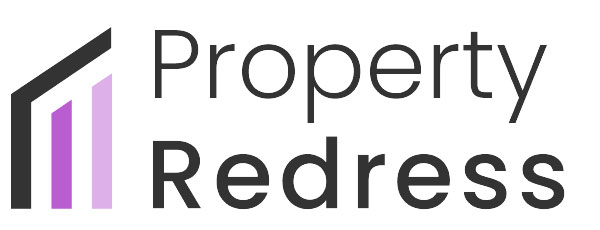What it means for landlords and tenants
The rental landscape in the UK is undergoing significant changes, primarily driven by the introduction of the Renters’ Rights Bill, which includes the abolition of Section 21 ‘no-fault’ eviction notices. The changes will have implications for tenants, landlords, and the private rental sector.

What is a Section 21 No-Fault Eviction Notice?
A Section 21 notice, also known as a ‘no-fault’ eviction notice, is a legal tool that allows landlords in England and Wales to evict tenants without providing a reason once their fixed-term contract has ended or during a periodic tenancy. This notice requires a minimum of two months’ notice, but it has been criticised for creating housing insecurity among tenants.
What is the Renters’ Rights Bill?
The Renters’ Rights Bill is a proposed piece of legislation aimed at overhauling the private rental sector in England. Its primary goal is to provide greater security and rights for tenants.
Key features of the Bill include:
· Abolishing Section 21 Notices: The Bill proposes to end the practice of “no-fault” evictions, meaning landlords can no longer evict tenants without a valid reason.
· Introducing a Single System for Tenancies: A new single system of periodic tenancies will be created, which provides greater stability for tenants.
· Improving Property Standards: New requirements will be introduced to ensure rental properties meet a minimum quality and safety standard.
· Capping Deposits: It introduces a cap on how much landlords can charge for deposits, making it more affordable for tenants.
Has the Renters’ Rights Bill now become law?
The Renters’ Rights Bill is currently in the legislative process. It has been debated and scrutinised in the House of Commons and has moved to the House of Lords. However, the Bill has not yet completed all the necessary stages to become law. It must pass through both houses of Parliament and receive Royal Assent before it can be enacted.
What will this mean for tenants?
For tenants, the Renters’ Rights Bill promises more security and stability:
· Greater Protection: The abolition of Section 21 will mean tenants cannot be evicted without a valid reason, such as breach of contract or rent arrears.
· Improved Living Conditions: Landlords will be required to meet higher standards, which could lead to safer and more comfortable rental homes.
· Potential Rent Controls: While not explicitly mentioned in the Bill, ongoing discussions may result in measures to prevent excessive rent increases, further benefiting tenants.
What does this mean for landlords?
For landlords, the Renters’ Rights Bill introduces several new obligations and changes:
· Ending No-Fault Evictions: Landlords will need to provide a valid reason for evicting a tenant, which could make the process of regaining possession of a property longer and more complex. If problem tenants refuse to leave and there are long delays through the courts, some experts have mentioned the consequences could see a 5-10% rise in rents.
· Compliance Requirements: New standards and regulations mean landlords may need to invest in property upgrades to meet legal requirements.
· Potential Legal Costs: With increased regulation, landlords may face additional legal costs or challenges when navigating disputes with tenants.
What does this mean for the private rental sector?
The private rental sector will experience a shift towards more regulated and tenant-friendly practices. The sector may see a reduction in the number of properties available for rent, as some landlords may choose to exit the market due to increased regulations and costs. However, the hope is that the sector will become more stable and secure for tenants.
We expect to see a change in how landlords select renters as they will become more risk-averse, and the process will likely become more costly.
As a landlord, what should you do?
Landlords should prepare for these changes by:
· Staying Informed: Keep up-to-date with the progress of the Bill and understand your rights and responsibilities under the new laws.
· Reviewing Tenancy Agreements: Ensure that tenancy agreements are compliant with any new requirements.
· Investing in Property Maintenance: Ensure your property meets the new standards to avoid fines and penalties.
· Seek Legal Advice: Consider consulting with a legal professional to understand the full implications of the Bill on your properties.
Would it be best to use a Letting Agent?
For many landlords, partnering with a Letting Agent may become a more attractive option as they can:
· Handle Compliance: Keep your property in line with new regulations and standards.
· Reduce Stress: Manage day-to-day tenant relations and maintenance issues.
· Protect Your Investment: Ensure your property is well-maintained and rented to reliable tenants.
As a landlord, what other changes in do I need to be aware of?
Besides the abolition of Section 21, the Renters’ Rights Bill includes several other changes:
· New Regulations on Rent Increases: The Bill may include measures to prevent unreasonable rent hikes.
· Mandatory Redress Scheme Membership: All landlords could be required to join a government-approved redress scheme.
· More extended eviction periods: the Bill also increases the mandatory threshold for eviction from two to three months’ arrears and the notice period from two weeks to four.
Significant changes ahead
The Renters’ Rights Bill represents a significant change in the UK rental market, with both positive and challenging implications for landlords. By understanding these changes and preparing accordingly, landlords can navigate this evolving landscape effectively. Considering the assistance of a letting agent may help ensure compliance and reduce the stress of managing properties under the new regulations.
Propertymark said ‘with Labour having a majority in the House of Commons, the legislation could go through as quickly as next spring, with the reforms being implemented by late summer next year.
If we can help in any way, please get in touch. Our website has a wealth of information, including lettings agency prices, properties to let and lettings management.







